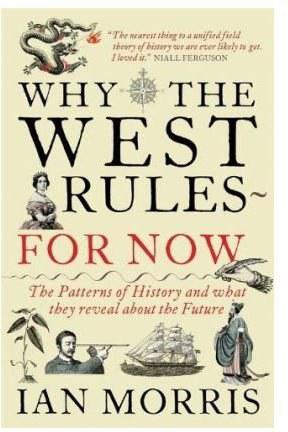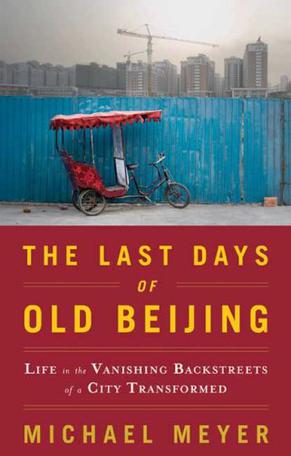-

The Rise and Fall of the Third Reich
SINCE ITS PUBLICATION FIVE DECADES AGO, William L. Shirer’s monumental study of Hitler’s empire has been widely acclaimed as the definitive record of the twentieth century’s blackest hours. A worldwide bestseller with millions of copies in print, The Rise and Fall of the Third Reich offers an unparalleled and thrillingly told examination of how Adolf Hitler nearly succeeded in conquering the world. Here, in a thoughtful new introduction for the fiftieth anniversary of its National Book Award win, Ron Rosenbaum, author of the much-admired Explaining Hitler, takes a fresh and penetrating look at this vital and enduring classic and the role it continues to play in today’s discussions of the history of Nazi Germany. -

The Roman Empire
The Roman Empire was a remarkable achievement. It had a population of sixty million people spread across lands encircling the Mediterranean and stretching from drizzle-soaked northern England to the sun-baked banks of the Euphrates in Syria, and from the Rhine to the North African coast. It was, above all else, an empire of force - employing a mixture of violence, suppression, order, and tactical use of power to develop an astonishingly uniform culture. This Very Short Introduction covers the history of the Empire from Augustus (the first Emperor) to Marcus Aurelius, describing how the empire was formed, how it was run, its religions and its social structure. It examines how local cultures were "romanised" and how people in far away lands came to believe in the emperor as a god. The book also examines how the Roman Empire has been considered and depicted in more recent times, from the writings of Edward Gibbon, to the differing attitudes of the Victorians and recent Hollywood blockbuster films. -

The Cambridge History of China
This is the first of two volumes of this authoritative Cambridge history which review the Republican period, between the demise of imperial China and the establishment of the People's Republic. These years from 1912 to 1949 were marked by civil war, revolution and invasion; but also by change and growth in the economic, social, intellectual and cultural spheres. The chapters in this volume represent new syntheses by leading scholars concerned with Republican China. They examine economic trends in the period and the rise of the new middle class. Intellectual trends are surveyed to show the changes in traditional Chinese values and the foreign influences which played a major role in Republican China. Political development and events are traced until 1928; and the second, companion volume will complete the historical coverage. An introduction by John K. Fairbank placed the period in the context of international trade and influence. Although it is written by specialists, the goals and approach of this Cambridge history are to explain and discuss republican China for an audience which will include scholars, students and general readers who do not have special knowledge of Chinese history. It will be useful both as narrative history and as a reference source on the history and politics of China. -

Why the West Rules - for Now
Like most of us living in the West I have have pondered this question from time to time. Why did the west come out in front, and will it last? Should we all start learning Chinese? And was it inevitable - were Westerners more open-minded, or harder working, or were we just super-lucky to have had the industrial revolution? Or was it simply the work of exceptional people such as Julius Caesar, James Watt or Columbus? Morris looks at this from a different angle. He uses an index of social development to analyse how societies have risen and fallen (including energy capture, organisation/urbanisation, war-making and information technology). But most importantly he tells a brilliant story of global history. It's a big book, but it has to be, to cover its full scope. Part history, part archaeology, part geography, part biology and part sociology it is the work of a real polymath. It's incredibly readable too, beginning with a terrific fantasy of how things might have been. I didn't agree with all of it but it's still the best history book I've read this year. You may guess that I felt stongly about this book. -

The Last Days of Old Beijing
Just in time for the Summer Olympics in Beijing, the Old City's narrow lanes and shops are being bulldozed and their residents displaced to make way for Wal-Marts, shopping centers and high-rise apartments. Part memoir, part history, part travelogue and part call to action, journalist Meyer's elegant first book yearns for old Beijing and mourns the loss of an older way of life. Having lived for two years in one of Beijing's oldest hutongs—mazes of lanes and courtyards bordered by single-story houses—Meyer chronicles the threat urban planning poses not only to the ancient history buried within these neighborhoods but also to the people of the hutong. The hutong, he says, builds community in a way that glistening glass and steel buildings cannot. His 81-year-old neighbor, whom he calls the Widow, had always been safe because neighbors watched out for her, as she watched out for others: the book opens with a delightful scene in which the Widow, a salty character who calls Meyer Little Plumblossom, brings him unsolicited dumplings for his breakfast. The ironies of the reconstruction of Beijing are clear in the building of Safe and Sound Boulevard, which, Meyer tells us, is neither. -

Horrible Histories Box Set